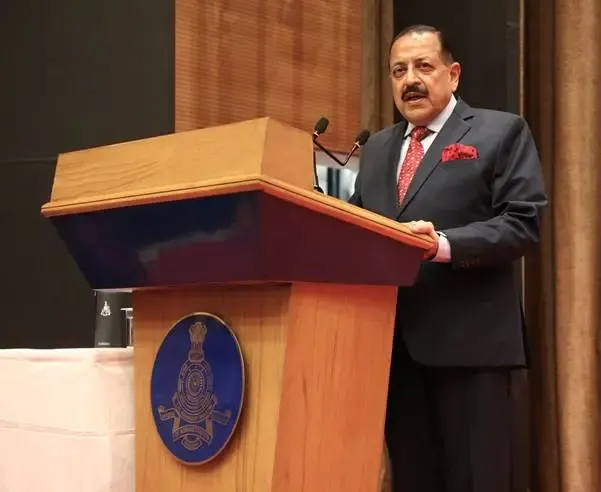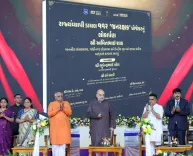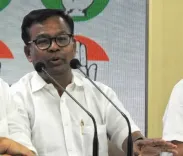Are Young Civil Servants the Architects of India’s 2047 Vision?

Synopsis
Key Takeaways
- Youth Role: Young civil servants are vital for shaping India’s future.
- Foundation Course: It marks the transition to public service responsibilities.
- Diversity: The cohort reflects India's inclusive administration.
- Innovative Training: Programs foster skills like resilience and empathy.
- Time Capsule: Vision statements will be revisited in 2047.
Mussoorie, Aug 31 (NationPress) Union Minister of State (Independent Charge) for Personnel, Public Grievances and Pensions, Dr Jitendra Singh, stated on Sunday that the young civil servants joining the services today hold the vital responsibility of steering India’s future as the nation approaches its centenary of Independence in 2047.
During the event at the 100th Foundation Course for the new Officer Trainees of the 2025 batch Civil Servants, Jitendra Singh emphasized that they are “the architects of 2047 India” and highlighted their essential role as guardians of the Constitution in building a progressive and citizen-focused nation.
The minister also inaugurated the new 800-seater auditorium, ‘Kartavyashila’, at the Lal Bahadur Shastri National Academy of Administration, constructed at an expenditure of Rs 50 crore. He referred to the auditorium as “a crucible of ideas, debates, and inspiration”, crafted to promote collective learning and camaraderie among participants from various services.
Congratulating the 2025 batch for their accomplishments in the Civil Services Examination, he remarked that the Foundation Course represents more than just academic training: “This course signifies your transition from theoretical knowledge to the organized field of public service, equipping you for the significant responsibilities of governance.”
The minister underscored the diversity of the cohort, comprising officer trainees from 19 civil services, including All India Services, Central Services, and the Royal Bhutan Civil Service, calling it a testament to the inclusive nature of India’s administration.
He also highlighted the Academy’s newly established One District One Product (ODOP) Display Hall and Facilitation Centre, aimed at promoting local enterprises and connecting them to national markets. He indicated that this initiative would assist officer trainees in recognizing the significance of grassroots livelihood opportunities in fostering inclusive development.
He reiterated the government’s reforms in civil service capacity-building, mentioning Mission Karmayogi, which is intended to equip officers with continuous learning tools in a fast-evolving governance landscape. “As responsibilities shift, you must stay adaptable and uphold humility, integrity, and moral courage,” he stated.
Focusing on training innovations, the minister brought attention to the Himalayan Study Tour, attachments with Central Armed Police Forces, village immersions, and the Aarambh 7.0 program at Ekta Nagar, Gujarat, where trainees will engage with the Prime Minister and other dignitaries. He pointed out that these experiences would cultivate resilience, empathy, and teamwork alongside professional skills.
The minister was also involved in sealing the vision statements of the 2024 batch in a time capsule at the Academy, a practice initiated as per the Prime Minister’s suggestion. These will be opened in 2047 when trainees revisit to reflect on their journeys and contributions to the nation.
Recognizing the challenges that lie ahead, Jitendra Singh remarked that young officers would need to balance their constitutional obligations, political realities, and citizen expectations with dignity.






